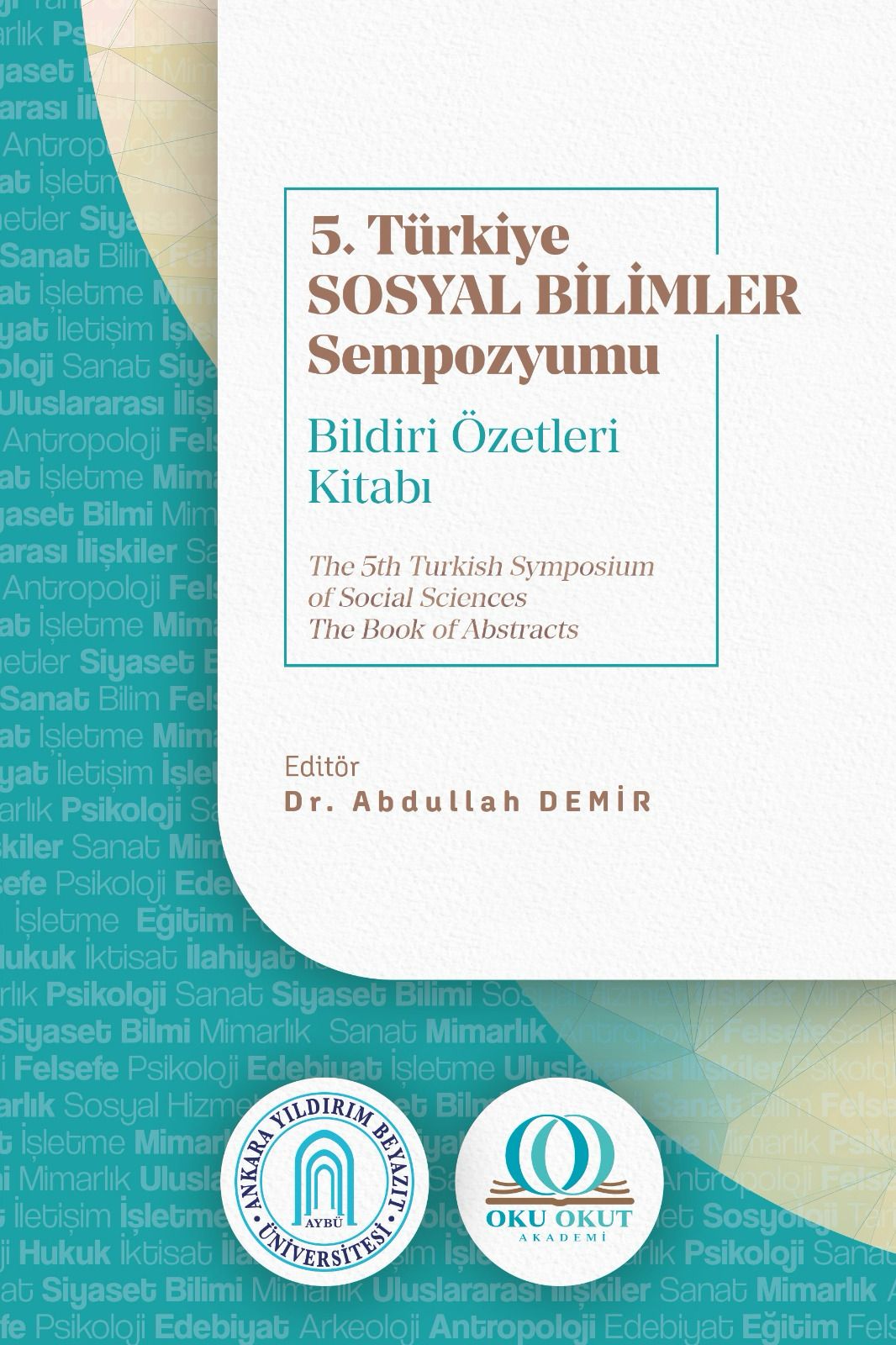al-Taftazani’s View of Acquisition (Kasb) in terms of Human Responsibility
İnsanın Sorumluluğu Bağlamında Teftâzânî’nin Kesb Yorumu
Within the historical journey of Kalām thought, the issue of human actions has been one of the controversial areas that has paved the way for many developments on both the epistemological and ontological planes. The debates surrounding the nature of the balance that must be established between God’s absolute power and human responsibility have not only raised theoretical issues but have also directly concerned the concepts of moral and volitional responsibility. In this context, Saʿdeddîn et-Teftâzânî (d. 792/1390), one of the prominent figures of 14th-century kalām thought, endeavoured to make a scholarly contribution to the details of the issue. Teftâzânî criticised both the Muʿtazilite approach centred on tefvîz and the Jabriyya paradigm of cebrî, developing a balanced stance that distanced itself from both extreme interpretations. According to him, human actions are subject to a two-way classification; the act of creation (halk) belongs to Allah, while the act of acquisition (kesb) belongs to the servant. In this context, according to Teftâzânî, kesb is a relative state that has no real existence; it expresses not the existence of the act, but its being determined. The acquisition of the servant manifests itself in the form of directing, choosing, and expending his power towards action or inaction. Teftâzânî did not merely repeat the Eşʿarî theory of acquisition, but endeavoured to reinterpret it and give it a more refined and consistent structure. Teftâzânî’s original approach is particularly evident in his linguistic and semantic analyses of key concepts such as ‘halk’ and ‘kesb’ in the Qur’ān. These analyses, which examine the linguistic contexts and layers of meaning of the concepts, show that he sought to approach theological issues not only on a theoretical level but also on a semantic level. In this paper, Teftâzânî’s theoretical framework developed in the context of human actions is evaluated in relation to the classical theological tradition. The study follows a text-centred method based on conceptual analysis, and a systematic framework has been established based on textual data. In this way, both Teftâzânî’s contribution to the relevant issue and his position within the tradition of kalâm have been determined. In his approach to the problem of human actions, the influence of al-Iji (d. 756/1355) and Fahreddin al-Razi (d. 606/1210) is clearly felt, as he adopts an attitude that attributes the public aspect of actions to Allah and the acquired aspect to the servant. Within this framework, Teftâzânî opposes the Muʿtezila understanding of the agent while developing a balanced perspective that distances itself from deterministic interpretations. According to him, the action directed by the servant’s power and will is ‘acquisition,’ while the creation of this action from nothing is ‘creation.’ Furthermore, it is clearly emphasised that actions outside of one’s will do not entail responsibility. Teftâzânî’s approach maintains the classical theological position while also bringing a critical and systematic depth to the issue.
Kelâm düşüncesinin tarihsel serüveni içerisinde insan fiilleri meselesi gerek epistemolojik gerekse ontolojik düzlemde pek çok açılımın doğmasına zemin hazırlayan tartışmalı alanlardan biri olmuştur. Allah’ın mutlak kudreti ile insanın fiilî sorumluluğu arasında kurulması gereken dengenin mahiyetine dair sürdürülen bu tartışmalar sadece teorik bir problematiği değil aynı zamanda ahlâkî ve iradî sorumluluk fikrini de doğrudan ilgilendirmiştir. Bu bağlamda XIV. yüzyıl kelâm düşüncesinin seçkin simalarından biri olan Saʿdeddîn et-Teftâzânî (öl. 792/1390) meselenin tafsilatına yönelik ilmî bir katkı sunma çabası içinde olmuştur. Teftâzânî, bir yandan Muʿtezile’nin tefvîz merkezli yaklaşımını diğer yandan Cebriyye’nin cebrî paradigmasını eleştirerek her iki uç yoruma da mesafeli ve dengeleyici bir tavır geliştirmiştir. Ona göre insan fiilleri çift yönlü bir tasnife tâbidir; fiilin yaratma (halk) yönü Allah’a, kazanma (kesb) yönü ise kula aittir. Bu çerçevede Teftâzânî’ye göre kesb, hakiki varlığı olmayan izâfî bir durumdur; fiilin varlığını değil, onun makdûr oluşunu ifade eder. Kulun kesbi ise kudretini fiil veya terke yönlendirme, tercih etme ve belirli bir tarafa sarfetme şeklinde tezahür eder. Eşʿarîliğin kesb teorisini yalnızca tekrar etmemiş onu yeniden yorumlayarak daha işlenmiş ve tutarlı bir yapıya kavuşturma gayretinde bulunmuştur. Teftâzânî’nin bu özgün yaklaşımı özellikle Kur’an’daki “halk” ve “kesb” gibi anahtar kavramlar üzerine gerçekleştirdiği lugavî ve semantik analizlerde kendisini göstermektedir. Kavramların dilsel bağlamları ve anlam katmanları üzerinden yapılan bu çözümlemeler, onun kelâmî meselelere sadece nazarî değil aynı zamanda anlamsal düzlemde de yaklaşma çabası içinde olduğunu göstermektedir. Bu bildiride, Teftâzânî’nin insan fiilleri bağlamında geliştirdiği teorik çerçeve klasik kelâm geleneğiyle kurduğu ilişki zemininde değerlendirilmektedir. Çalışmada kavramsal çözümlemeye dayalı metin merkezli bir yöntem izlenmiş metinsel veriler üzerinden sistematik bir çerçeve oluşturulmuştur. Bu şekilde, hem Teftâzânî’nin ilgili meseleye dair katkısı hem de kelâm geleneği içerisindeki konumlanışı belirlenmeye çalışılmıştır. Özellikle insan fiilleri problemine yaklaşımında, el-Îcî (öl. 756/1355) ve Fahreddin er-Râzî’nin (öl. 606/1210) etkileri belirgin şekilde hissedilmekte fiillerin halk yönünü Allah’a, kesb yönünü ise kula nispet eden bir tutum benimsediği görülmektedir. Bu çerçevede Teftâzânî Muʿtezile’nin fail anlayışına karşı dururken cebrî yorumlara da mesafeli, dengeli bir perspektif geliştirmektedir. Ona göre kulun kudret ve iradesiyle yöneldiği fiil “kesb”, bu fiilin yoktan var edilmesi ise “halk”tır. Ayrıca irade dışı fiillerin sorumluluk doğurmayacağı da açıkça vurgulanmaktadır. Teftâzânî’nin yaklaşımı klasik kelâmî pozisyonu sürdürmekle birlikte meseleye dair eleştirel ve sistematik bir derinlik de taşımaktadır.

Telif Hakkı (c) 2025 Yunus Emre Sağırlı (Yazar)
Bu çalışma Creative Commons Attribution-NonCommercial 4.0 International License ile lisanslanmıştır.
CC BY-NC 4.0 lisansı, eserin ticari kullanım dışında, her türlü ortam ve formatta paylaşılmasına, kopyalanmasına, çoğaltılmasına ve orijinal esere uygun şekilde atıfta bulunmak kaydıyla yeniden düzenlenmesine, dönüştürülmesine ve eser üzerine inşa edilmesine izin verir.
Makale Bilgileri
- Konu Kelam - Mezhepler Tarihi
- Gönderim 17 Temmuz 2025
- Kabul 5 Ağustos 2025
- Yayım 29 Kasım 2025
- Sayı 5. Türkiye Sosyal Bilimler Sempozyumu
- Bildiri Bilim Alanı Kelam - Mezhepler Tarihi
Sağırlı, Yunus Emre. “İnsanın Sorumluluğu Bağlamında Teftâzânî’nin Kesb Yorumu”. Türkiye Sosyal Bilimler Sempozyumu 5 (November 29, 2025). https://doi.org/10.55709/tsbsdergisi.715






